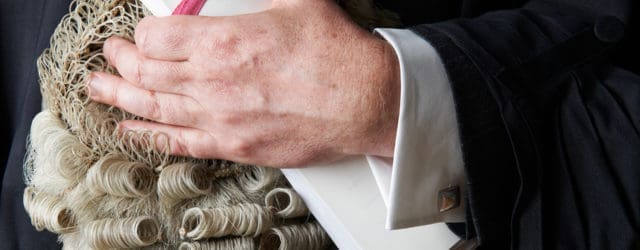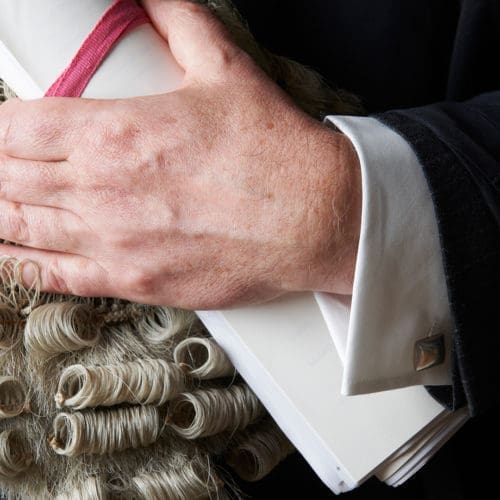Van Oord UK Limited v Dragados UK Limited
April 2022On 7 April 2022, the Outer House, Court of Session delivered the Lord Braid decision in the case of Van Oord UK Limited (“Van Oord”) v Dragados UK Limited (“Dragados”).
The “Natural Justice Issue”. In this case, the Scottish Courts considered the validity of a decision made by an adjudicator. In assessing whether the adjudicator had acted in a way deemed ultra vires, the Court considered two elements, namely:
- Did the adjudicator reach their decision on a basis not canvassed by the Parties; and if so
- Was there a material breach of the principles of natural justice?
If the Court finds that the adjudicator did act beyond their powers, then the adjudicator’s decision cannot stand.
Background
A Sub-Contract was entered into on 16 March 2018, between Dragados (the Main Contractor) and Van Oord. The Sub-Contract provided for Van Oord to carry out services like the dredging of silts, sands, gravel and glacial till for the Aberdeen Harbour Expansion Project (“the Project”).
Various disputes had arisen during the lifecycle of the project including seven adjudications, of which the sixth is the centre of discussion for the purposes of this article. In the sixth adjudication, Van Oord claimed that it was entitled to an Extension of Time (“EOT”) as well as Prolongation costs in respect of four compensation events.
Regarding the compensation events, of particular note is; CEN 048 – Delayed Access to Open Quay Work; and CEN 055 – Late Delivery of Remaining Caissons. Method-related charges were also claimed by Van Oord for equipment costs of various weather events (“weather compensation events”).
On 14 September 2021, the adjudicator found in Van Oord’s favour for the EOT, Prolongation Event CEN 048 and the weather compensation events however, failed to award Van Oord for CEN 055.
The Parties’ Claim
In enforcing the adjudicator’s decision, Dragados refuted that enforcement of the award should be made on the following grounds:
- The decision in relation to CEN 048 was vitiated by a breach of natural justice;
- The decision in relation to the weather compensation events was vitiated by a failure to address all of Dragados’s submissions; and
- The decision was not severable.
As the course of action developed, Van Oord was able to agree that the weather compensation events were unable be supported and so were dropped. Further agreement was reached as Dragados accepted that the decision was severable if reached in accordance with natural justice, meaning that the court only looked at the natural justice issues and the means taken by the adjudicator to reach their decision.
In essence, this asked the Lord Justice to weigh up the CEN 048 decision and assess the means taken by the adjudicator in reaching that outcome.
Dragados Submission
It was Dragados’s position that in reaching their decision for CEN 048, the adjudicator had chosen a baseline programme which neither expert for the parties had identified as relevant and had in fact provided reasons rejecting the baseline programme as the point of dispute. It was therefore suggested by Dragados that the adjudicator is unable to make an award, whereby the dates in question had not been canvassed by either party.
Dragados did raise that had the adjudicator notified the parties of their intention to adopt a different critical date to that which was canvassed, then they would have taken steps to submit further and/or differing arguments had the accepted critical date been known.
Van Oord’s Response
Van Oord contended that the adjudicator was allowed to take the position they did, as the adjudicator was simply seeking an intermediate position between the two parties’ respective cases. Regarding, the additional arguments that was put forward by Dragados, Van Oord suggested that these arguments had always been available to raise however, contractual clauses had the effect of extinguishing any potential claim on this front. As such, even if Dragados had raised an alternative/additional argument, in any event, this would not have been effective and so the adjudicator’s award should be granted.
Decision
In making the decision, Lord Braid ruled that the common theme running through the propositions that were put to him by the Parties, was that the procedure adopted by the adjudicator must ultimately be fair. Thought was given to the balance of an adjudicator using their own professional judgement to reach an outcome, and “going off on a frolic of their own”.
Crucially, it must be decided whether or not “the adjudicator has departed from the four corners of the submissions made by the parties” and have the issues that are being put to question, been appropriately canvassed by the parties?
Lord Braid noted that if the issues have been suitably canvassed by the parties, then it would not be equitable for the adjudicator to seek further submissions. That being said, if the adjudicator wishes to venture away from what has been canvassed, then further submissions ought to be made to fully address the dispute.
On the matter of the critical date put forward by Dragados in their submissions, Lord Braid was of the opinion that because the critical date adopted by the adjudicator, pre-dated the critical date that was put forward by Van Oord, it cannot be seen to be an intermediate date but rather, a date of the adjudicator’s own endeavour.
In the adjudicator taking this action, equity demands that the parties be entitled to make further submissions on the adjudicator’s findings Had the adjudicator allowed the parties to amend or make further submissions on his view then the course of the adjudication may have altered.
In concluding, Lord Braid gave weight to Dragados’s argument “that it was not for Dragados to show that their argument would have necessarily succeeded, simply that Dragados was deprived of the opportunity of making it”. As such, it was found that the adjudicator did not give the parties a fair opportunity to address the adjudicator’s critical date findings and because of this, an opportunity was afforded for injustice to be done and so the adjudicator’s decision relating to CEN 048 is unable to stand.
Comment
For adjudicators, this case will either provide confirmation of the extent of their powers or will prove to be a nasty shock. Here, the adjudicator has disregarded the advice given by the experts in search for their own truth and took away the opportunity from either party to further their arguments or indeed clarify the position or indeed clarify their respective positions.
The lesson is clearly to give the parties an opportunity to comment if you are making a decision of your own which the parties have not put to you.
Download PDF







